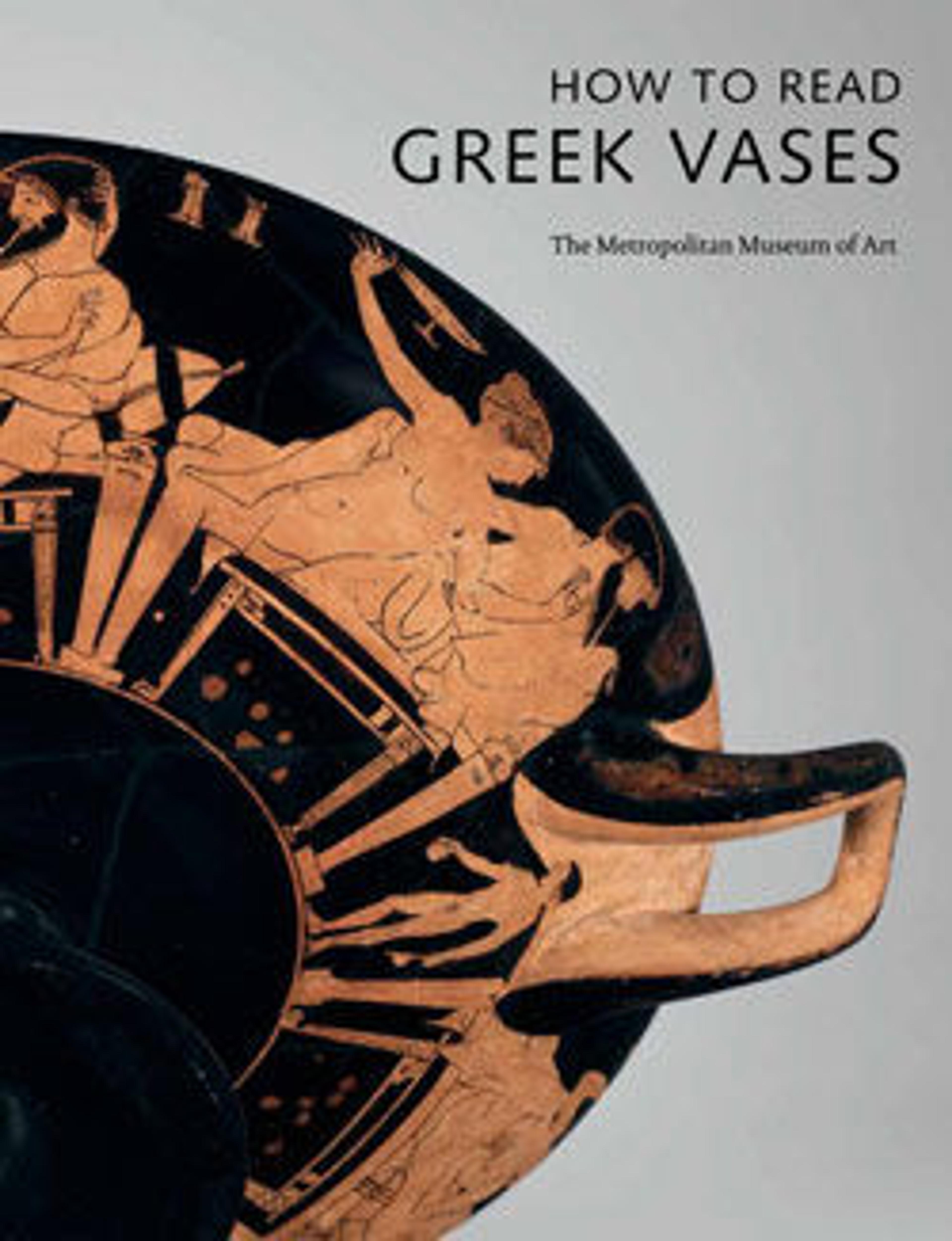Terracotta kylix: lip-cup (drinking cup)
Exterior, obverse, hen above; below, Tleson, son of Nearchos, made [me]
Tleson was one of the most prolific and meticulous potters of lip-cups. We know a bit about him because his signature often constitutes the major decoration of the exterior. From his signature, we also know that his father was Nearchos, one of the foremost innovators of the preceding generation; a work by him is displayed nearby. Tleson may have painted the vases he made; in the absence of proof, his collaborator is called the Tleson Painter.
Tleson was one of the most prolific and meticulous potters of lip-cups. We know a bit about him because his signature often constitutes the major decoration of the exterior. From his signature, we also know that his father was Nearchos, one of the foremost innovators of the preceding generation; a work by him is displayed nearby. Tleson may have painted the vases he made; in the absence of proof, his collaborator is called the Tleson Painter.
Artwork Details
- Title:Terracotta kylix: lip-cup (drinking cup)
- Artist:Signed by Tleson as potter
- Artist:Attributed to the Tleson Painter
- Period:Archaic
- Date:ca. 540 BCE
- Culture:Greek, Attic
- Medium:Terracotta; black-figure
- Dimensions:H. 6 9/16 in. (16.7 cm)
width with handles 12 1/4 in. (31.2 cm)
diameter 9 3/16 in. (23.3 cm) - Classification:Vases
- Credit Line:Fletcher Fund, 1956
- Object Number:56.171.34
- Curatorial Department: Greek and Roman Art
More Artwork
Research Resources
The Met provides unparalleled resources for research and welcomes an international community of students and scholars. The Met's Open Access API is where creators and researchers can connect to the The Met collection. Open Access data and public domain images are available for unrestricted commercial and noncommercial use without permission or fee.
To request images under copyright and other restrictions, please use this Image Request form.
Feedback
We continue to research and examine historical and cultural context for objects in The Met collection. If you have comments or questions about this object record, please contact us using the form below. The Museum looks forward to receiving your comments.
